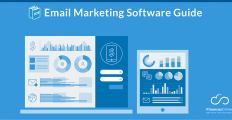With the approval of quick loans online faster today than ever, many borrowers can also easily fall prey to an unscrupulous direct lender. Despite federal and state regulations that strictly monitor quick loans online now, a direct lender can find a loophole that may trap you in a debt spiral if you’re not careful. Let’s take a look at Cathy’s concern:
“I recently took out a $500 loan at 15% interest. So I need to pay $575 in two weeks. Add in the processing fee of $20, the total loan is at $595. Not bad, I thought, or should I be wary of some hidden fees popping up later? How to spot the associated costs of quick loans online?” – Cathy, Austin, TX
Hi Cathy,
They are not so much as hidden as they are unexpected. The “hidden fees” are mostly costs that you failed to anticipate after making the loan. In many cases, borrowers have failed to see the long-term financial consequences of quick loans online because they’re blinded by the idea of having cash now. But the burden of fault should fall on loan companies, which should be advising borrowers about the probability of being trapped in a debt spiral even for a small loan (in the UK and Canada lenders are obliged to educate borrowers). Sadly, for every ethical lender, there is also an unscrupulous lender.
Here are the common hidden or unexpected costs when making quick loans online:
1 Direct lender offers new loan on top of existing one
The scenario is like this: everything is going according to the borrower’s plan to pay off his $500 loan. Midway through the loan, the lender offers another $500 loan with a quick approval, making it sound like the borrower has earned another loan because of his good standing. Unknowingly, the borrower is being set up to default by the lender. Why? So the lender can charge more in penalties and late payment fees. It may be legal, but it’s not ethical to lure borrowers into a trap.
Be wary of these gimmicks; make sure to deal only with an ethical direct lender by reading between the lines of what’s being showcased as a promotion especially for borrowers with bad credit.
2 Asking for blank checks
Borrowers should be dealing with lending companies, not individuals. Loan companies are governed by policies and regulations for your protection; while individuals can act on their own without regard for the borrowers’ welfare.
When a loan agent asks for a blank check, don’t issue it. Lenny (not her real name) was asked by a loan employee to leave a blank check with her signature. When the check went through the bank, she was surprised to see the employee’s name instead of the agency’s. Although that seems trivial, it opens the borrower to potential abuse by the individual who can be a con artist scamming the borrower and the lending agency.
3 Interest rates higher than national average
The national average on loan interest is about 16%, according to the Bureau of Business Research by the University of Texas. Some states may charge higher or lower depending on state caps. In Texas, for instance, a lender can charge where the interest is up to 25% per $100. That means you’ll be paying more for a similar loan in California, which puts the cap at 15%.
Likewise,checking your state loan regulations is easy to see if the direct lender is issuing legal rates.
Here’s a tip: if you’re a couple and the other partner is working in another state, you can compare state interest caps and go for the lower rate.
4 Loan renewals that can lead to three times the principal
Did you know that the average borrower pay as much as $793 for a $325 loan according to the University of Texas report? That’s because borrowers often renew their loan when they can’t pay the whole debt.
Many borrowers apply for quick online loans to cover their daily living expenses fast, such as rent, food, and utilities. Upon collection, they will find themselves unable to pay back the whole loan, so the lender will give them the option to renew to avoid defaulting. Without increasing their income or decreasing their expenses, the borrowers are simply extending the loan’s life until they get an extra income from somewhere like a company bonus to cover the entire debt. By that time, they’ve paid up nearly three times the amount of the original loan. It’s a debt trap that unethically eats up the household income.
CONCLUSION
Make sure to use quick online loans for emergencies only. If you can’t meet your daily living expenses, the solution is to either adjust your lifestyle or find another source of income. But don’t take out quick online loans to see you through the daily costs. That’s burying you further down the debt pit.























Another hidden cost is rolling over your loan. It’s much like number one, but it isn’t. You’re dealing with the same loan but you’re extending the payment term. It’s costly because you end up paying more on interest than the principal. I read in some of your posts that some borrowers ended up paying as much three to four times than their original loan after rolling over their loan for more than three months. So don’t roll over your loan.
I think the basis of state residency is where you live not where you work. So even if you live and work in Jersey City and your partner works in Manhattan, you still have to borrow in your state and abide by New Jersey lending regulations including interest caps and other conditions. Unless if you have another residency in another state. But that sounds like you won’t need a short-term loan.
Never give a blank check! Some borrowers are naïve to give what the lender requests them. A blank check can put you in financial and legal trouble if you can’t pay back on time. That’s estafa and it’s a criminal offense. Your bank account information and proof of income should suffice. If a lender wants more than that, you may be better off checking other more lenient lenders.
Leave a comment!